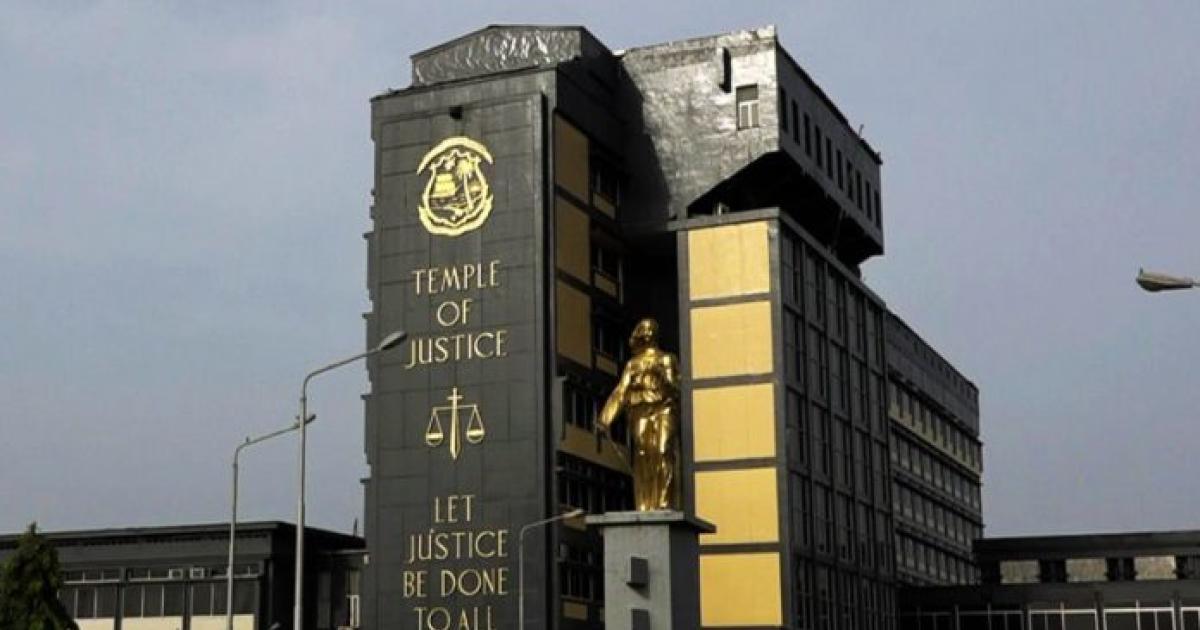Africa-Press – Liberia. The Supreme Court of Liberia has ruled that Executive Director of the Liberia Anti-Corruption Commission, Cllr. Edwin Kla Martin, erred in challenging the legislature’s constitutional power to make and alter laws without limitation.
The Court ruling, which Martin, is yet to respond to, arises from his petition asking the Court to declare sections 16.1 and 16.2 of the amended and reinstated act of the LACC unconstitutional, saying the government abused its power to dissolve his tenured position and recreate the same.
However, the Court in its unanimous verdict delivered by Chief Justice Sie -A-Nyene Yuoh, ruled that the Legislature has the “unquestionable power to amend, modify or abolish the LACC as deemed expedient in the interest of the state, and its action cannot be said to violate the constitution.”
Martin’s lawyers had argued that Parts 16.1 and 16.2 of the restated LACC act were not in accordance with the norms and concept of ex post facto law as entrenched in Article 21 of the Constitution, and that allowing the sections to remain would be a grave breach of the constitution.
Article 21 of the 1986 Constitution, which Martin’s lawyer is quoting, states that “no person shall be made subject to any law or punishment which was not in effect at the time of the commission of an offense, nor shall the Legislature enact any bill of attainder or ex post facto law.”
The Court justices disagreed, saying that no public official has vested the right to a public office except for those officers or offices that are clearly and expressly protected by the Constitution, “which is not the case in the present petition.”
“The petitioner and other Commissioners still occupying and maintaining their respective positions and enjoying all of the associated benefits and immunities cannot be said to have been removed from office, as the transitional tenure provisions of sections 16.1 and 16.2 being futuristic, the petitioner’s petition is prematurely filed,” the Court ruled.
The Court added that, “however, should it become necessary to terminate the services of the petitioner and others similarly situated before the expiration of their contractual rights, the sanctity of contract as enshrined in the Constitution should be given due consideration. WHEREFORE AND IN VIEW OF THE FOREGOING, the petitioner’s petition is denied.”
Part XVI of the law, which focuses on transitional provisions that Martin sued to have it declare unconstitutional, noted that: “All the commissioners now serving the LACC shall remain in office after the enactment of this new law, until their successors are appointed, but each is eligible to apply and be subjected to the appointment procedure provided for under this law.”
And while Martin’s attempt to have the clause declared unconstitutional was unsuccessful, the Supreme Court has also ruled that “the sanctity of contract as enshrined in the constitution should be given due consideration” if the government decides to fire the petitioner and other people in a similar situation.
The legislature’s decision to wholly restate the LACC act of 2008 came after President George Weah had a ‘minor adjustment’ in 2021 to the Commission’s direct prosecutorial power.
But the amendments have been criticized by civil society organizations, and opposition senators,who claimed that the sole intent was to undermine strides Martin had made at LACC in exposing alleged corrupt government officials, some of whom are closer to the President.
The President and supporters of the act justified the repeal, claiming that it is a long-overdue reform that broadens the scope of operation and gives the new LACC direct and immediate prosecution power, which the old LACC lacks, albeit with limits.
The Court ruling is then a win for Weah and the 54 legislature, which had been hampered in the public for deliberate undermining the war against corruption in a country where integrity, transparency, and accountability are grossly endangered.
Meanwhile, the amended and restated act of the LACC limits the Commission’s capacity to connect with the public and provide updates on the progress of investigations.
It also significantly limits the re-established LACC’s ability to “force the freezing of assets of a person or individuals being investigated or prosecuted for alleged acts of corruption.” Freeze of assets is now restricted to person(s) representing flight risk or those who have fled the bailiwick of the Republic of Liberia.
Section 10.9 of the restated act restricts the Commission by enforcing undue confidentiality, preventing it from disclosing vital facts about the inquiry to the public until an indictment is announced.
For More News And Analysis About Liberia Follow Africa-Press






